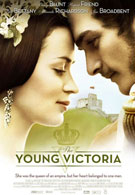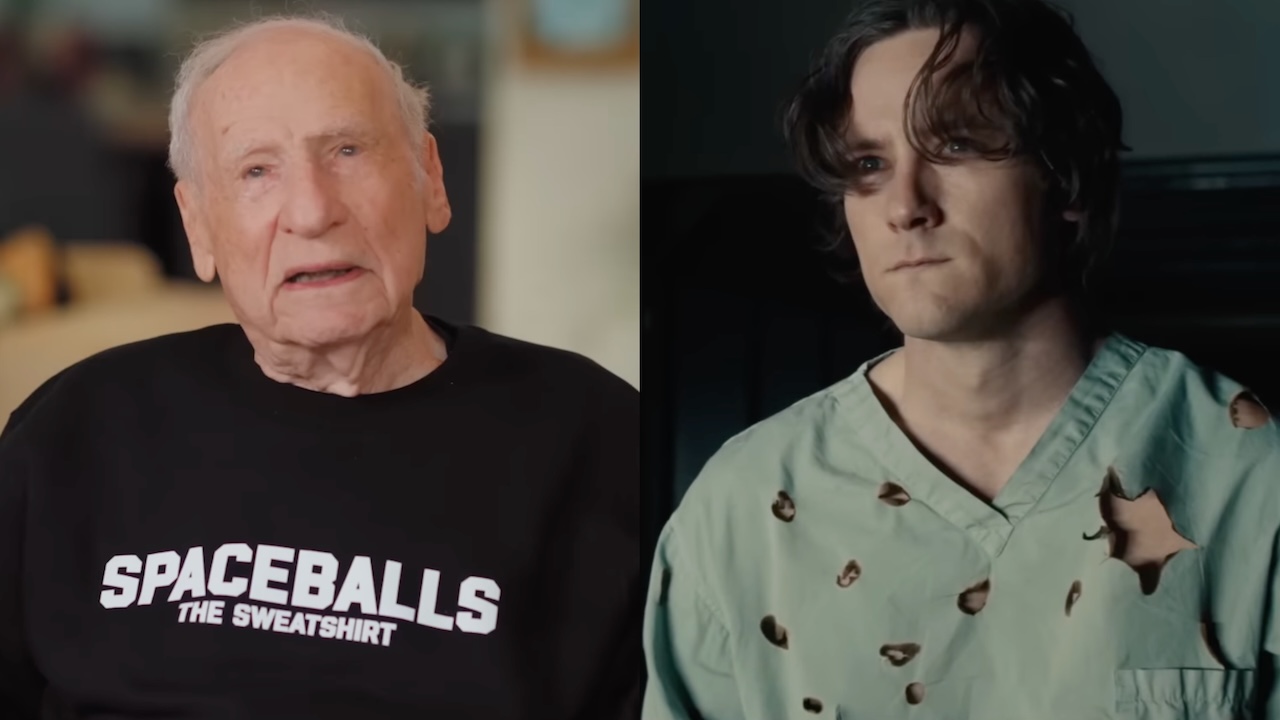I tend to avoid costume period dramas. I find them tiresome to the point that British English sounds more like Chinese than the dialectic most similar to American English. It goes in one ear and out the other as my mind dissolves into oblivion. The same thing happens to you? I’m not surprised considering the rotten reception this genre typically gets in the U.S. But I implore you, rethink your preconceived notions and give The Young Victoria a chance. Yes, it’s talky and stately, but it has a degree of humanization making it far more enjoyable and relatable than others of its kind.
Emily Blunt stars as Victoria, a young princess amidst an intense power struggle. Her uncle, King William (Jim Broadbent), is dying and she’s next in line for the British throne. Rather than remain by his side to learn all she can about Court life, Victoria’s mother The Duchess of Kent (Miranda Richardson), forces her to live a life of seclusion. With her conniving advisor, Sir John Conroy (Mark Strong), by her side, the Duchess controls every aspect of Victoria’s life to be sure she’s kept safe, but also for self-serving purposes. Successfully rebelling against her domineering mother when King William passes away, Victoria is named Queen of England.
Her first order of business is to seclude her mother and Conroy to an apartment in her palace. Even with them out of the way, she’s overwhelmed by the instant fame and the never-ending attempts at manipulating her. She confides in Lord Melbourne (Paul Bettany), who looks out for her best interests, but still has personal ambitions in mind. The only person Victoria thinks she can completely trust is her cousin, Albert (Rupert Friend), but even he has ulterior motives having been pressured into courting her by his father, King Leopold (Thomas Kretschmann).
Sounds like one big political drama, right? Wrong! A large portion of the film is devoted to Victoria’s royal debacles, but those only serve as a backbone to a coming of age story. The beginning of the film is entirely devoted to the Duchess and Conroy’s maltreatment of Victoria, which is utterly upsetting. You get a quick giggle out of Victoria’s mother forcing her to hold someone’s hand whenever she walks up or down the stairs, but it quickly becomes eerie and unnerving. Building upon that discomfort are appropriately unsettling performances by both Strong and Richardson. Strong’s dark and sometimes malevolent demeanor is frightening and Richardson’s reaction, or lack there of, will break your heart. Even after the Duchess makes somewhat of a transition by the end of the film, it’s impossible to look at her without seeing the blemishes of the past.
By the time Victoria becomes queen, you’re so desperate for her to have someone in her life to lean on, you’re willing to let anyone in. The time is perfect to bring in both Albert and Melbourne. Even under the influence of his father, Albert clearly has true feelings for Victoria. The same goes for Melbourne. You know he’s got something up his sleeve, yet he makes her so happy and, more importantly, makes her feel safe. As both relationships bloom, they diverge in completely different directions enhancing the emotion of both. Melbourne’s skeletons are coming out of the closet while Victoria begins to see Albert as the confidant and partner she needs. Now, Victoria is a woman and their beautiful romance becomes the film’s driving force.
The story is strong, the costumes spectacular and the score majestic, but the only reason all of these assets come together is because of Emily Blunt. You may have enjoyed her performances as the snarky supporting character in films like The Devil Wears Prada or Sunshine Cleaning, but The Young Victoria propels her to a new level. Emily proves herself versatile and capable of carrying an entire film as she transforms Queen Victoria from a page in history to someone who is, well, human.
While I’d love to see Blunt get the credit she deserves, two things here are bound to get in the way. First, the film can be slow, particularly when knee-deep in some of the banter between characters. This leads to a second problem, which pertains to those unfamiliar with the history of the British monarchy. In the beginning of the film, some of the very detail-oriented political arguments become confusing, tiresome and impossible to absorb. Unless you do a little background reading before seeing the it, you may feel lost.
Your Daily Blend of Entertainment News
I confine the negative to just one paragraph, because the positive elements far outshine the film’s flaws. In fact, a viewer’s inability to grasp the intricate historical components will put more focus on the movie’s strength: the story of Victoria, not s a queen, but just as a person. Whether you’re a period piece addict or a costume drama avoider The Young Victoria’s devotion to putting its subject in a new light is refreshing and surprisingly entertaining.
Staff Writer for CinemaBlend.


